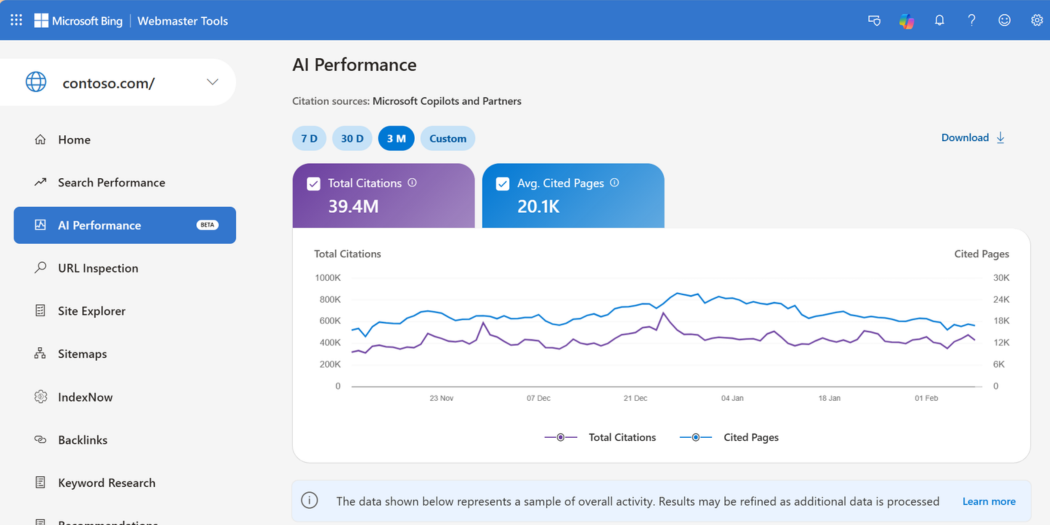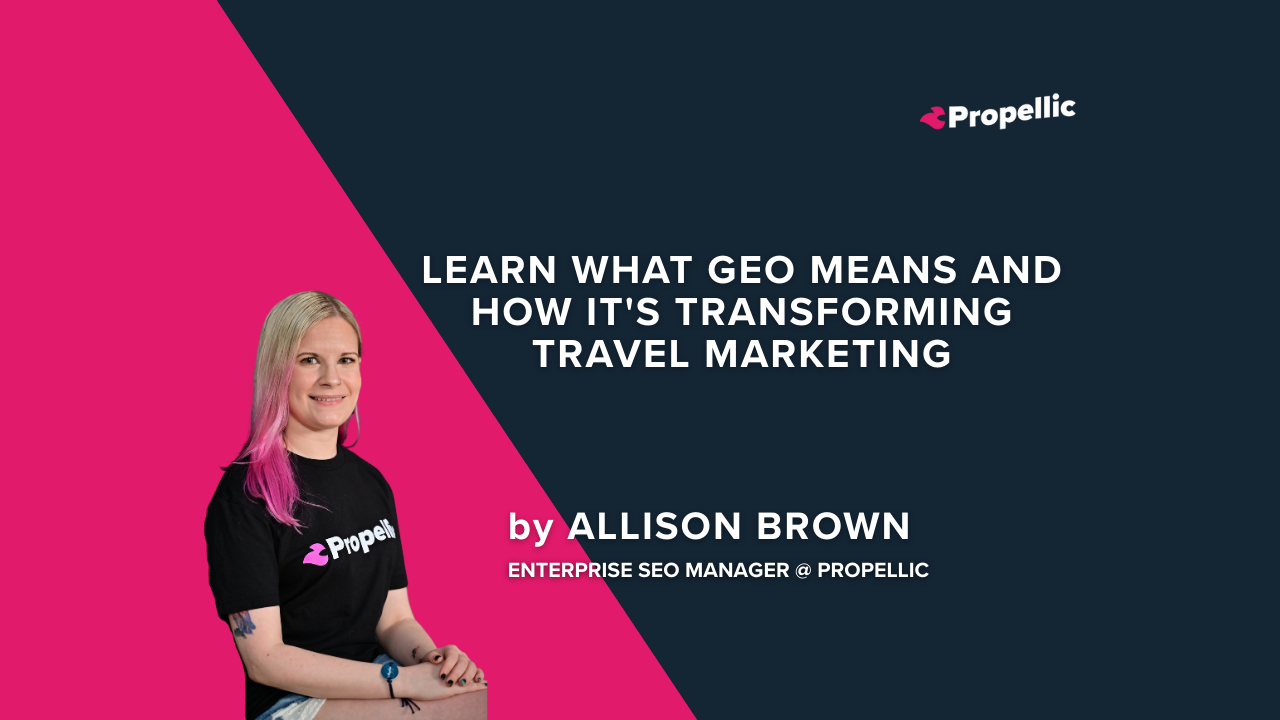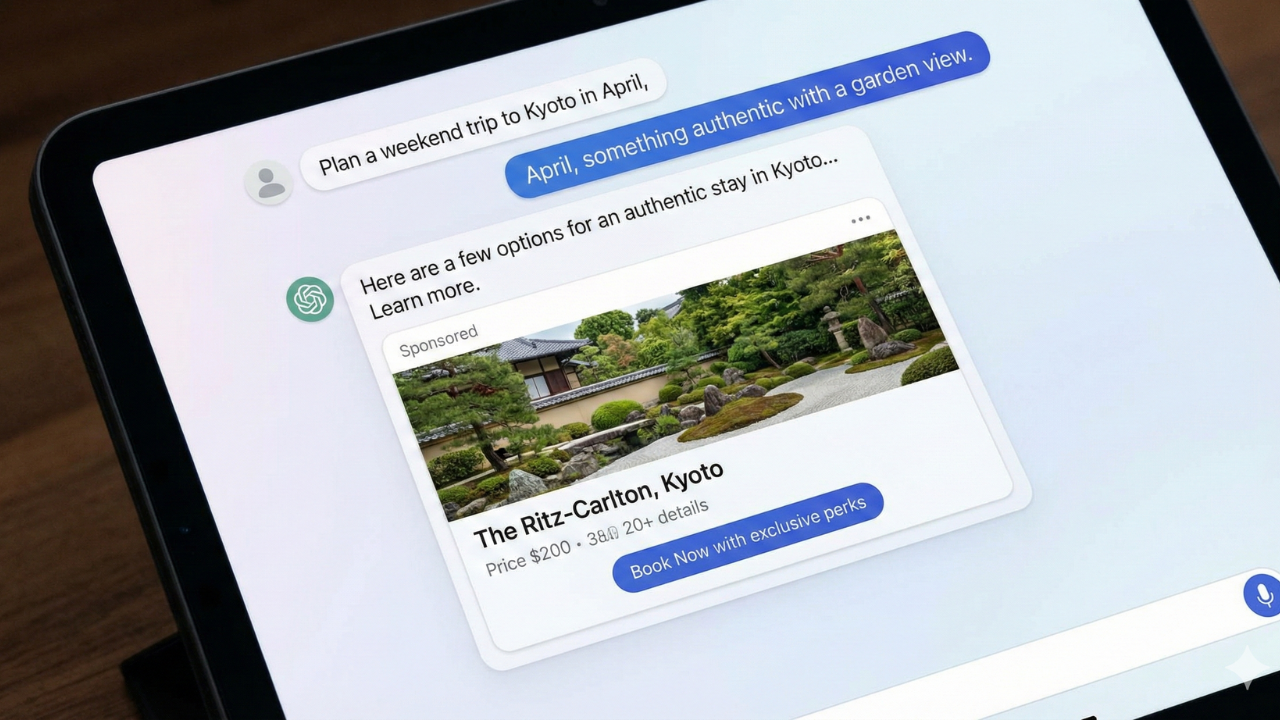The world of performance marketing is moving so fast it’s giving us whiplash. Just when you feel like you’ve caught your breath, a new AI update or platform shift sends ripples across the entire industry.
It’s a bit scary, but hey, that's what keeps it exciting.
In today’s NavLog edition:
- Google just put AI in the driver's seat
- Things we're watching at Propellic
- A new media network for travelers
- Propellic's experiments this week
- Adobe's take on AI
GOOGLE JUST PUT AI IN THE DRIVER'S SEAT
(AND YOUR WEBSITE TRAFFIC MIGHT BE TAKING A DETOUR)

By: Brennen Bliss, CEO @ Propellic
Remember when Google's biggest update was changing their logo color? Those days are officially over. Last week, Sundar Pichai confirmed that Google's AI Mode is moving from beta testing to the front lines of search results, and the features that work will get dumped into the primary search experience as they are ready. Translation: your customers are about to start having full conversations with Google instead of clicking on your website.
What's Actually Happening Here?
Google's AI Mode isn't just another AI Overview snippet. This is a complete shift to a chat-based search experience powered by Gemini. When someone searches "best tours in Amsterdam," they'll have a back-and-forth conversation with Google's AI, asking follow-up questions like "What about for families with young kids?" or "Which ones are under $200?"
I expect this to become the default search experience within the next six months.
Why Travel Companies Should Care
Here's the thing: most people are lazy. If they can get their answer through a conversation without clicking anywhere, they will. This "zero-click phenomenon" on steroids means fewer people visiting your website, even if your content helped train that AI.
Those top-of-funnel blog posts about "romantic destinations for Valentine's Day"? The traffic from those could disappear faster than airline miles during a flash sale.
The Silver Lining
People still need to book somewhere. AI can chat about tours in London, but it can't swipe their credit card (yet). The key is making sure you're the company that gets mentioned when the AI suggests options.
This means doubling down on what makes you unique and ensuring your booking process is smoother than a first-class flight experience.
... of course, this will all change when Project Mariner becomes your digital assistant that can make the purchase.
The Bottom Line
Google just moved the goalposts while the game was still being played. With six months to prepare (my estimate), there's no excuse for being caught off guard.
AI-powered search now acts as a digital travel agent, answering questions directly and often bypassing websites. While this threatens web traffic, it creates a powerful opportunity for brands who adapt. The new goal is to become a trusted source that AI models cite and recommend.
This article provides the toolkit to do just that. We’ve distilled the insights from our “LLMs Are Stealing Your Travel Bookings” webinar into a practical tutorial and an actionable checklist to help you win in the new age of AI search.
Google Search Console Update
Google just made AI search tracking real – and it matters more than you think.
On Monday, June 16th, Google quietly updated its Search Console help docs to include AI-powered search results data. Translation: we can finally see what's happening with our content in AI Overviews.
Here's what Google will now track:
- Queries: Follow-up questions count as separate queries.
- Filtering: Google won't let you filter to see only AI-driven results (because of course they won't).
- Clicks: Any click from AI results to your site gets counted.
- Position: Each spot in AI results gets its own position number based on where you appear.
- Impressions: When your site shows up as a source in AI answers, that's an impression.
This changes everything for SEOs. For months, we've been flying blind while AI Overviews rolled out, wondering if our content was getting buried in some algorithmic black hole. Now we have actual data to work with.
Sure, the lack of dedicated AI filtering is annoying. But here's the thing – this forces us to look at the bigger picture instead of obsessing over one data point. We can start identifying patterns in what content gets pulled into AI answers and optimize accordingly.
The days of shrugging and saying "we can't measure AI impact" are over. Time to start paying attention to these metrics and figure out how to win in this new search world.

- Google is offering buyouts to employees who elect to leave. The program is not company wide, but it does include the search department (according to first-party accounts). If this doesn't tell you that search is about to get flipped on its head, I don't know what does.
- Ad platforms continue to announce AI-driven advertising features. TikTok Symphony is on the move. Upload a product photo and you'll get a beautiful 5-second ad. This is currently useless for travel brands... but we'll keep an eye on it.
"BUILDING A MEDIA NETWORK FOR TRAVELERS..."

By: Brennen Bliss, CEO @ Propellic
That's what Marriott's VP and CCO announced at Cannes Lions festival. After three years of testing, they're officially launching Riott Media - turning their million hotel rooms into targeted advertising opportunities. But here's what's interesting: they're not the only ones who can play this game.
The Opportunity
While Marriott figures out how to monetize their captive audience, there's a massive opportunity for tour operators and attractions to partner with hotels that haven't built their own media networks yet.
Two Examples of Practical Use Cases
- Vegas helicopter tours: Partner with mid-tier hotels for in-room TV ads during peak planning hours (7-9 PM). Feature real footage + QR codes.
- Costa Rica adventure tours: Place ads in boutique hotels on weather-triggered content. Rain forecast = covered coffee tour ads. Sunny weather = waterfall hiking promotions.
The Bottom Line
Most hotels are still figuring out their media strategy, meaning:
- Lower rates than you'll see in two years
- Easier partnership negotiations
- Access to travelers already in your destination with money to spend

Dasha G., Propellic's Sr. Director of Paid Media, generated a compelling 20-second video ad using Google Veo3 for a vacation rental client. We all agreed it's not perfect, but it's getting close.
Allison B., an Enterprise SEO & AI Visibility Manager at Propellic, started using Manus to build slide decks, removing hours of manual work. If you create presentations as part of your job, you should check it out.
ADOBE'S NEW "LLM OPTIMIZER" FEELS LIKE A STRATEGIC PIVOT

By: Brennen Bliss, CEO @ Propellic
Adobe just announced their upcoming "LLM Optimizer" tool, and it's raising some eyebrows. The creative software giant is now venturing into AI search optimization - a significant departure from their core business.
What's the Deal?
Adobe, known for Photoshop and creative tools, is developing a product to help businesses optimize for AI search results. This represents a major shift from their traditional focus on visual content creation software.
Why This Feels Off
Adobe has been struggling to keep pace in the AI visual generation space while competitors have rolled out impressive capabilities. They've caught up a bit, but are certainly not in first place. Now they're pivoting to something completely different: AI search optimization.
Why? I have no idea.
Their landing page suggests using "bold fun colors" to improve AI search visibility - advice that has no basis in how AI systems actually work or rank content. My response: wtf?
The Real Story
This appears to be Adobe trying to find new revenue streams while their core visual AI products lag behind the competition.
The Bottom Line
It's too early to judge since the product isn't publicly available yet, but this feels like a company trying to stay relevant in AI conversations rather than a natural extension of their expertise.
Shoutout to Barbara Puszkiewicz-Cimino, Director of Digital @ SUMMIT One Vanderbilt, for prompting me to write this opinion.

Paid Media
Senior Paid Media Strategist, Innovation & AI - Remote
SEO
Head of AI Visibility Optimization / GEO - Remote (United States)



Unlock Travel Bookings in the Age of AI Search
Want To Level Up Your Travel Marketing?
Subscribe to the NavLog, our bi-weekly travel marketing roundup, where you’ll be the first to know about breaking news that impacts travel marketers and access exclusive performance marketing strategies and practical tips you can implement from the marketers at the leading edge of the travel industry.






